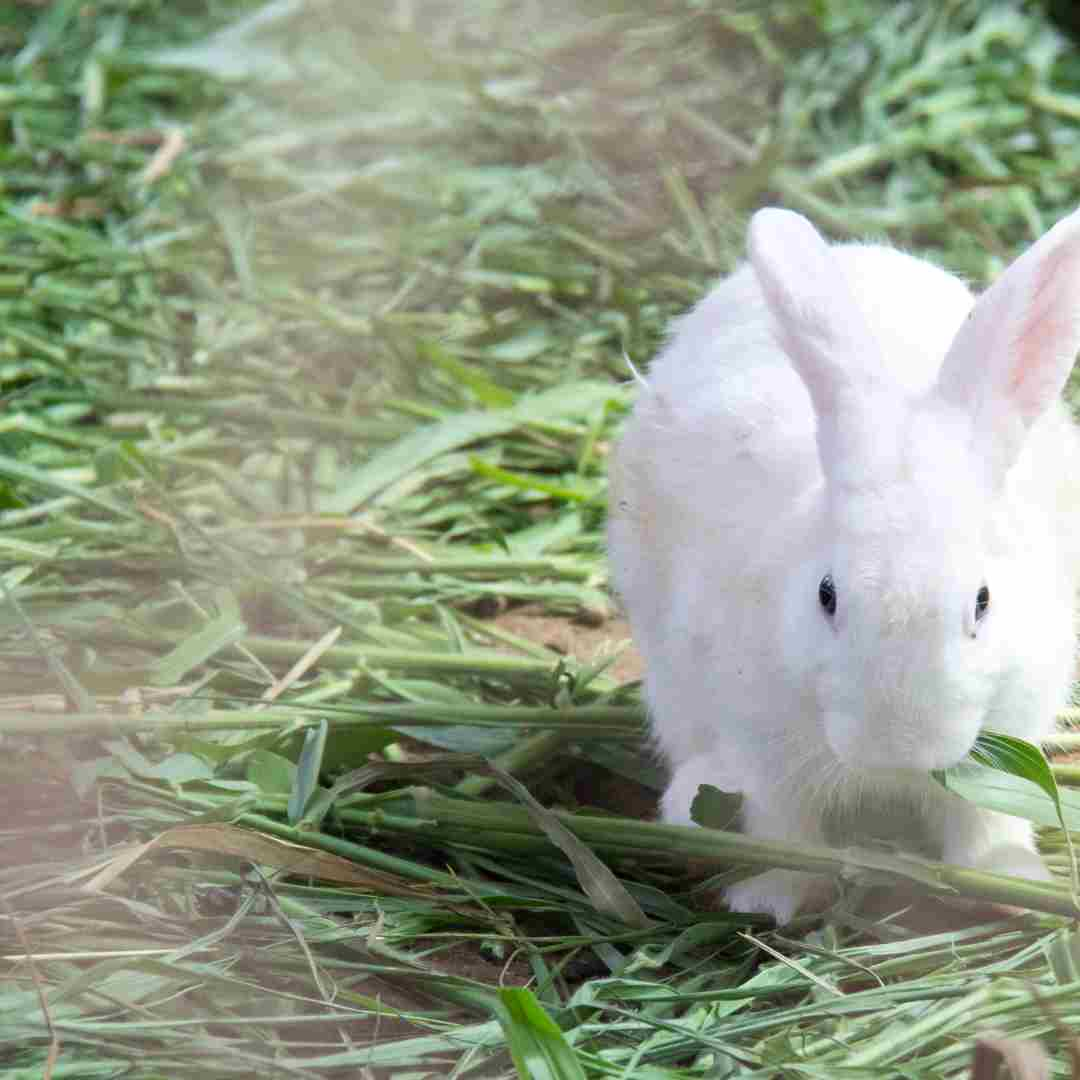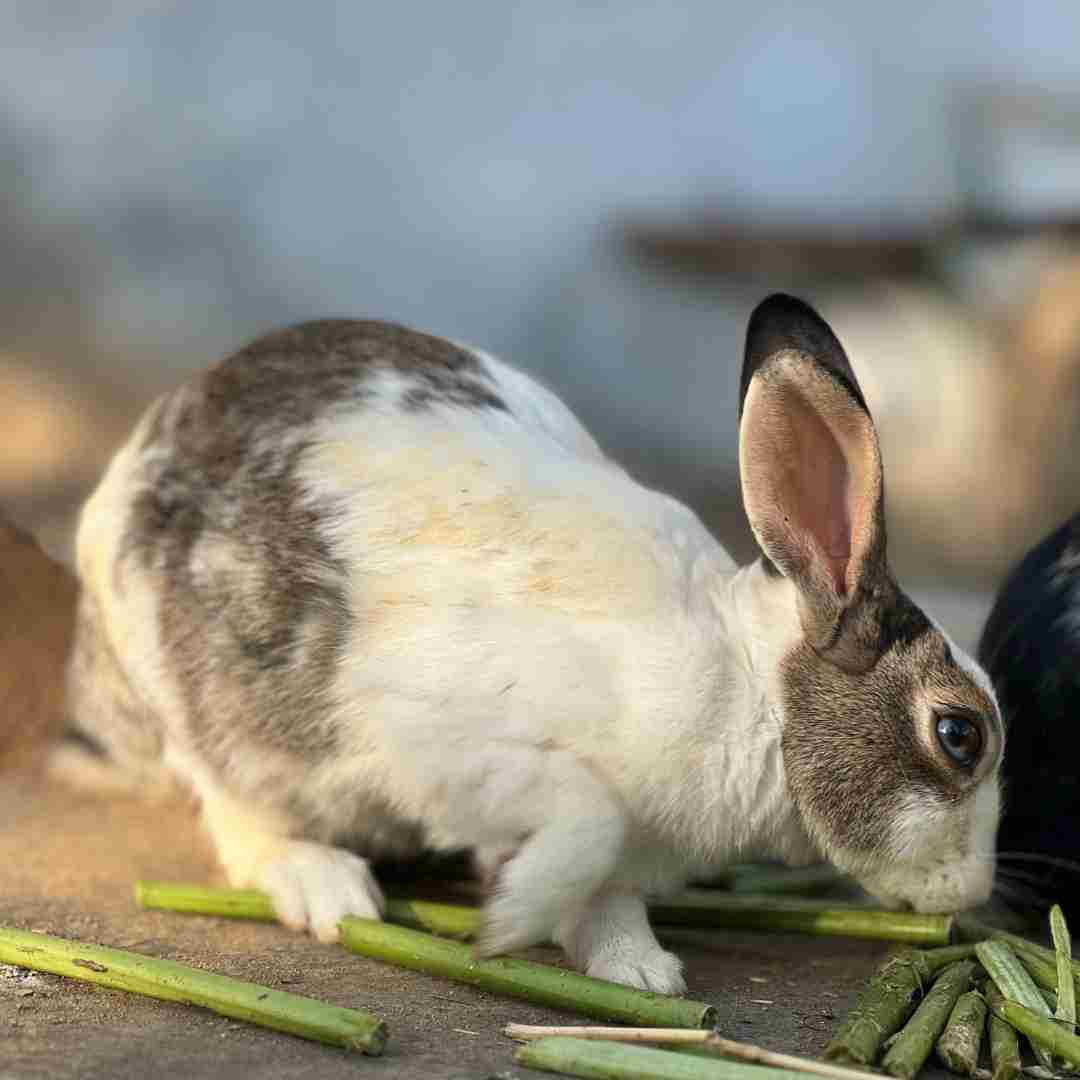Contents Table
Introduction
Rabbit Food Types: What to Look For
Benefits of a Balanced Rabbit Diet
Pros and Cons of Pelleted Rabbit Food
Best Rabbit Vegetables and Fruits
Benefits of Feeding Rabbit Hay and Grass
Q&A
Conclusion
Introduction
It's crucial to feed your rabbit the correct food. It can be hard to choose the right rabbit food among the various options. This page discusses rabbit food types and which ones are best for your rabbit's health. We'll also talk about feeding your rabbit a balanced diet with fresh veggies and hay.
Rabbit Food Types: What to Look For
Understanding rabbit food types and what to look for is crucial when choosing one. As herbivores, rabbits should eat mostly hay, fresh vegetables, and a few pellets.
Hay should be a rabbit's main food. Hay should be high in fibre and low in protein and calcium. Timothy hay is the most preferred rabbit hay, but oat, orchard, and brome are all good.
Pellets provide concentrated nourishment and should be eaten sparingly by rabbits. Rabbit-specific pellets are high in fibre and low in protein and calcium. Avoid sugary, coloured, or preservative-laden pellets.
Daily fresh veggies are essential for rabbits. Dark leafy greens, carrots, celery, and bell peppers are good choices. Avoid sugary or starchy veggies like maize, peas and potatoes.
Rabbits may enjoy fresh fruit, herbs, and dried flowers in addition to hay, pellets, and veggies. However, rabbits should only receive rewards seldom.
Look for high-quality ingredients and avoid additional sweets, colours, and preservatives when feeding your rabbit. A balanced diet of hay, pellets, and fresh veggies will keep your rabbit healthy and happy.
Benefits of a Balanced Rabbit Diet
Unique and fascinating rabbits need a balanced diet to keep healthy and happy. Hay, fresh veggies, and a few pellets make a nutritious rabbit diet. A balanced diet helps your rabbit's digestion, dental health, and immune system.
Rabbits need hay for most of their diet. Hay's fibre content supports a healthy digestive tract. If not worn down naturally, rabbit teeth can grow out.
Rabbits need fresh vegetables too. As a source of vitamins and minerals, vegetables are crucial for rabbit health. To avoid digestive difficulties, give vegetables in moderation.
Finally, a rabbit should eat some pellets. Pellets provide concentrated nutrients to augment hay and veggies. Pellets are high in calories and can cause obesity, thus rabbits should not eat them exclusively.
Balancing your rabbit's diet offers various benefits. Hay's fibre content aids digestion, therefore a balanced diet helps. Hay naturally wears down rabbit teeth, keeping them healthy. Finally, a balanced diet strengthens the rabbit's immune system with vitamins and minerals from vegetables.
In conclusion, rabbits need a balanced diet to stay healthy and happy. Hay, fresh veggies, plus a few pellets make a healthy meal. This boosts immunity, digestion, and tooth health in rabbits.
Pros and Cons of Pelleted Rabbit Food
Pelleted rabbit food is convenient and nutritious, thus many rabbit owners choose it. Whether to give your rabbit pelleted food has benefits and cons.
Pros
Nutritional balance is a major benefit of pelleted rabbit food. It has all the vitamins and minerals your rabbit needs to keep healthy. Pelleted food provides fibre, which helps rabbits digest. Due to its dry nature, pelleted food is easier to store.
Cons
Pellets can be heavy in calories, which can contribute to obesity in rabbits if they don't get enough exercise. Since pelleted food usually just one component, it lacks variety. Rabbits may become bored without enough flavours and textures. Pelletized rabbit food is more expensive than other versions.
Thus, pelleted rabbit food is handy and nutritious for your pet, but it has limitations. Consider the advantages and cons before feeding your rabbit pelleted food.
Best Rabbit Vegetables and Fruits
Herbivores like rabbits eat plants. To guarantee a healthy diet, feed your rabbit a range of fresh vegetables and fruits.
Vegetables
Your rabbit gets vitamins and minerals from dark leafy greens like kale, collards, and spinach. Celery, carrots, and bell peppers work too. Broccoli, cauliflower, Brussels sprouts, and squash are more options.
Fruits
Due to their sugar content, fruits should be served sparingly. Apples, pears, and bananas are rabbit-safe. Strawberries, blueberries, and raspberries work too.
It's crucial to investigate any food before feeding your rabbit because some veggies and fruits are harmful. Feeding your rabbit vegetables and fruits requires careful washing.
Give your rabbit a range of fresh vegetables and fruits to maintain a balanced diet.
Benefits of Feeding Rabbit Hay and Grass
An herbivore, rabbits eat vegetation. Hay and grass are rabbits' main foods. Feeding your rabbit hay and grass improves digestion, dental health, and overall wellness.
Rabbits need hay. Its high fibre content supports a healthy digestive tract. Hay reduces rabbit hairballs, a severe health hazard. Hay also feeds rabbits with vitamins and minerals.
Rabbits also eat grass. Its high fibre content aids digestion. Rabbits need vitamins and minerals from grass. Also, grass keeps teeth healthy and strong. Rabbit teeth grow continuously, thus munching grass keeps them healthy.
Feeding your rabbit hay and grass might also benefit its health. Eating hay and grass keeps rabbits active, reducing boredom and stress. Hay and grass also stimulate rabbits' minds, keeping them healthy.
Finally, feeding your rabbit hay and grass improves digestion, dental health, and overall wellness. Rabbits need hay and grass regularly.
Q&A
1. What's the greatest rabbit food?
The finest rabbit food is high in fibre and low in sugar and fat. Hay, fresh veggies, and a few pellets are needed.
2. Which vegetables are rabbit-safe?
A: Rabbits can consume carrots, celery, bell peppers, and dark leafy greens like kale, collard greens, and spinach.
3. Can rabbits eat fruits?
A: Rabbits can somewhat eat some fruits. Rabbit-safe fruits include apples, bananas, strawberries, and blueberries.
4. Are there any rabbit-unsafe foods?
Yes, rabbits should avoid certain foods. Sugary delights, processed foods, and high-fat or salt foods are examples.
5. How often should rabbits eat?
A: Rabbits need morning and evening meals. Hay and fresh water should always be available.
Conclusion
Finally, the finest rabbit food has fibre, low sugar, and a variety of fresh veggies, hay, and pellets. Your rabbit will stay healthy and happy on a balanced diet of fresh veggies, hay, and pellets. To ensure your rabbit gets enough nutrition, provide plenty of fresh water and watch their diet.
